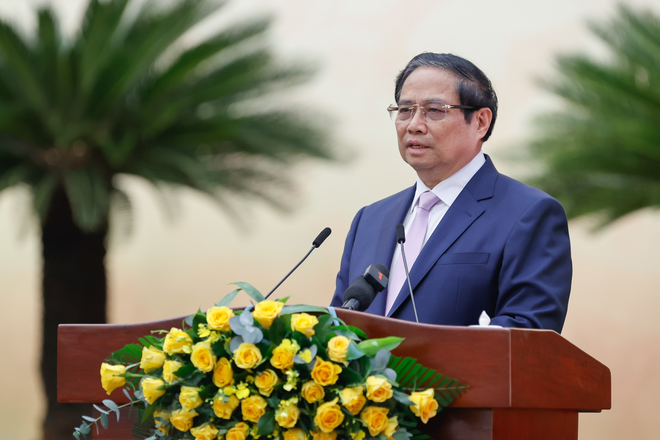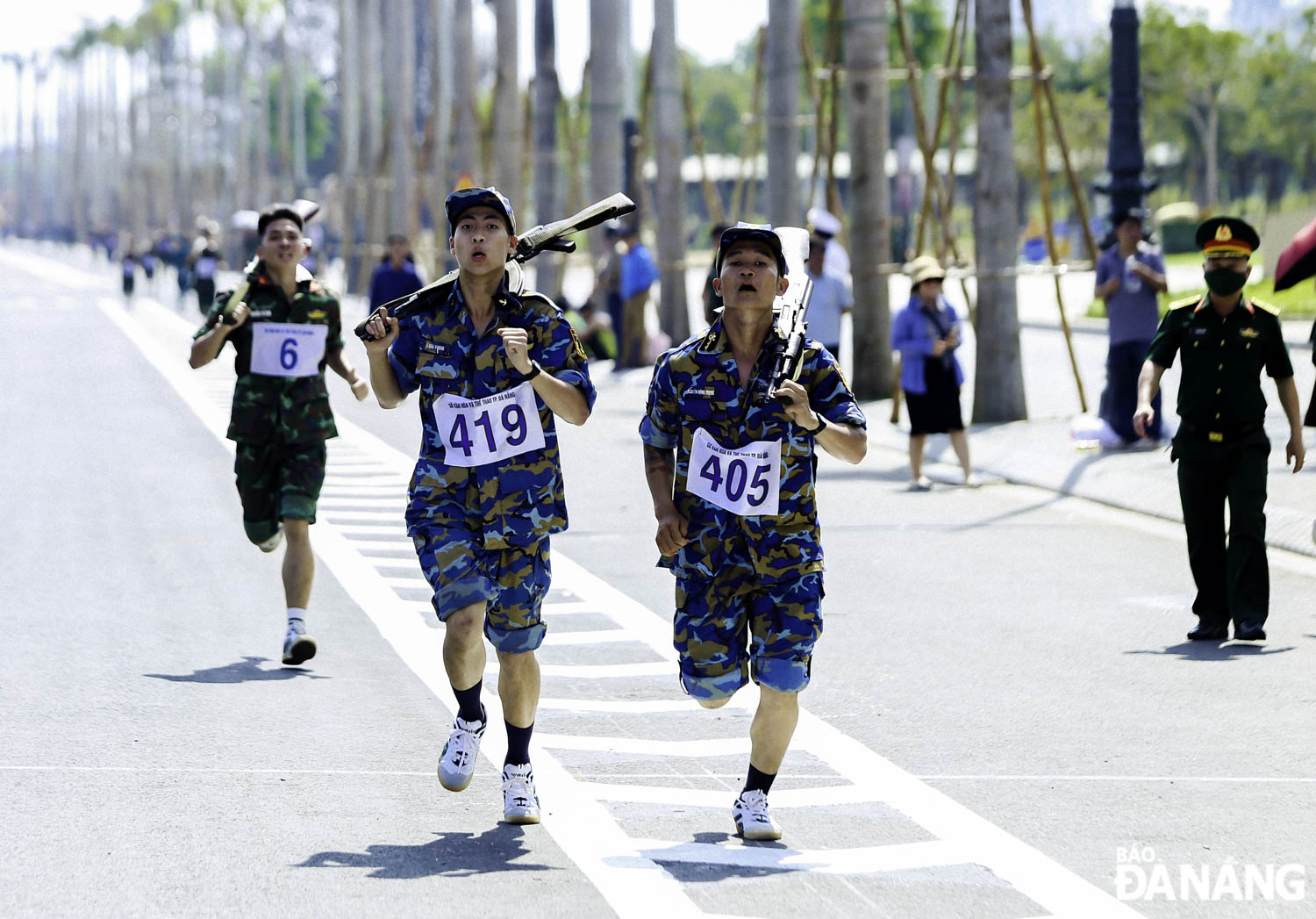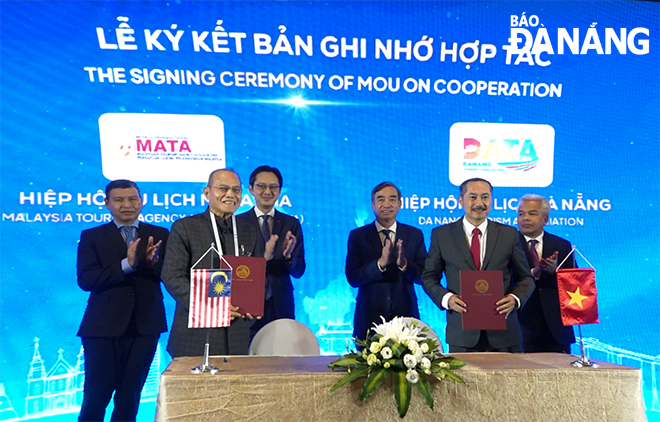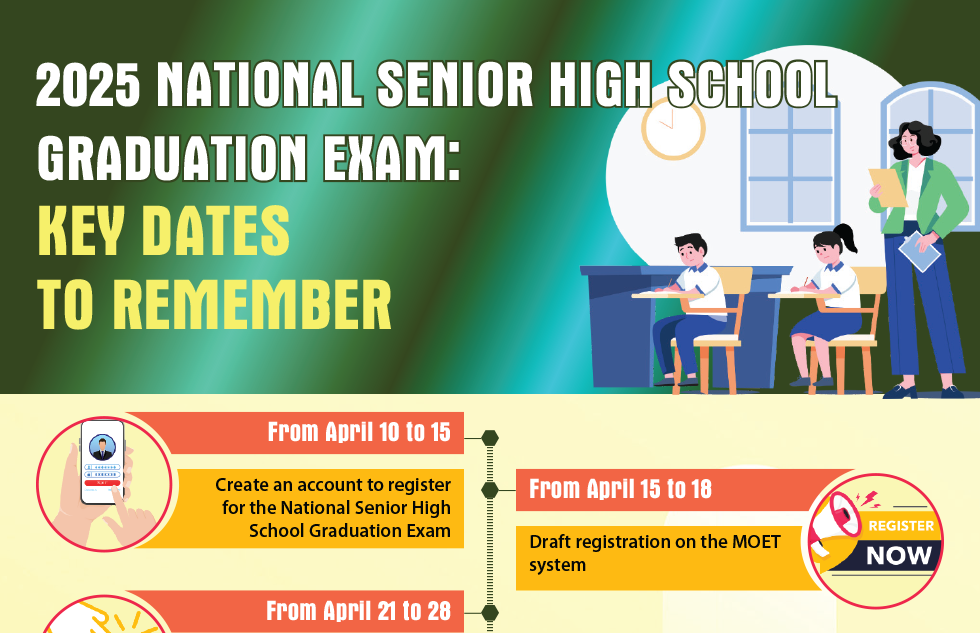Efforts to build regional and international financial centres
Politburo member, Prime Minister Pham Minh Chinh chaired a conference in Ho Chi Minh City on Saturday to announce the Government’s resolution on promulgating action plan to implement the Politburo’s conclusion on developing regional and international financial centres in Viet Nam.
 |
| Prime Minister Pham Minh Chinh speaking at a conference |
Speaking at the conference, PM Pham Minh Chinh expressed his joy at the strong participation of ministries, branches and localities as well as the support and sharing of international friends, which have helped to strengthen confidence in the effective development of the regional and international financial centres in Viet Nam.
He added that Viet Nam has achieved great achievements after many years of renewal. These are very important foundations for the country to continue to develop strongly in the coming time. In 2024, Viet Nam's socio-economic situation continued to recover very positively as the next month’s achievements were higher than the previous month and the next quarter was better than the previous quarter, achieving many outstanding results in all fields and better than 2023.
According to the PM, Viet Nam remained a bright spot in terms of growth and belonged to the group of countries with high growth in the region and the world with a yearly GDP growth rate of about 7%, bringing the country’s economic scale to about US$ 470 billion.
Political and social stability, national defence and security were ensured. Foreign affairs and international integration were promoted, continuing to affirm Viet Nam as a responsible member of the international community.
The Prime Minister assessed that 2025 was a year of special significance, the year of celebrating the 95th anniversary of the Party's founding, the 50th anniversary of the liberation of the South and national reunification, and the 135th anniversary of President Ho Chi Minh's birthday.
2025 was also the final year of implementing the 5-year socio-economic development plan 2021 - 2025, and a year of acceleration and breakthrough, creating the foundation and premise for double-digit growth in the coming period, he added.
The PM emphasised that, to achieve this goal, Viet Nam should continue to promote strategic breakthroughs (institutions, infrastructure and human resources); restructure the economy in conjunction with growth model innovation; improve productivity, quality, efficiency, resilience and competitiveness of the economy; and exploit new development spaces such as outer space, underground space, and marine space.
Along with that, the focus should be on renewing the three traditional driving forces (investment, consumption, export), as well as strongly promoting new ones such as digital economy, green economy, circular economy, sharing economy, knowledge economy and night economy, especially research and development of semiconductor, artificial intelligence, cloud computing, and the Internet of Things.
Recently, Viet Nam's total social investment reached 33-35% of its GDP, but in the coming time this number must reach 45-50% of total GDP, equivalent to VND 4-5 quadrillion, he said, adding that Viet Nam's capital market is growing rapidly and its stock market continues to be an important capital transmission channel in the market, maintaining growth momentum compared to 2023.
Clearly stating the main goals, tasks and solutions in Viet Nam's socio-economic development in 2025 and the coming time, PM Chinh emphasised that building and developing the regional and international financial centres in HCM City and Da Nang will create a premise and a solid foundation for the country to enter a new era - the era of the nation’s rise, becoming a rich, strong and prosperous nation where the people are increasingly happy and well-off.
According to the government leader, the solutions and tasks should concentrate on developing modern financial infrastructure, promoting the construction of a payment and depository system and financial transaction system; attracting international talents, creating a remuneration mechanism, and an attractive living and working environment to attract the world's leading financial experts; boosting financial innovation, developing new financial tools such as green finance, financial technology (fintech) and financial risk management; expanding international integration and cooperation with global financial institutions, participating in international financial standards; and protecting financial security, strengthening supervision and risk management, ensuring financial system stability.
Reporting by MAI QUE - Translating by MAI DUNG








